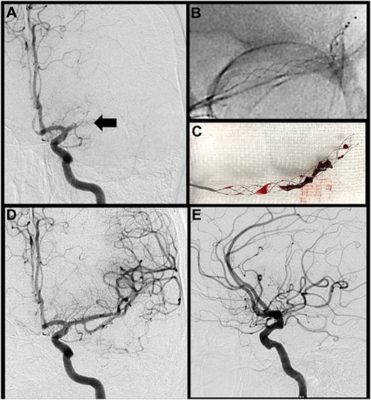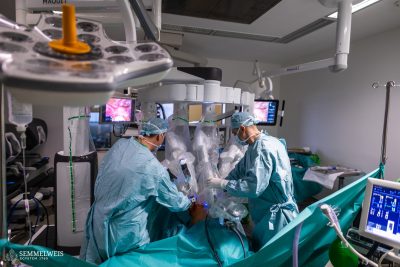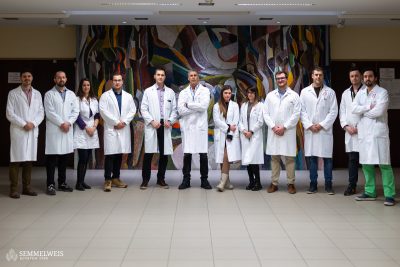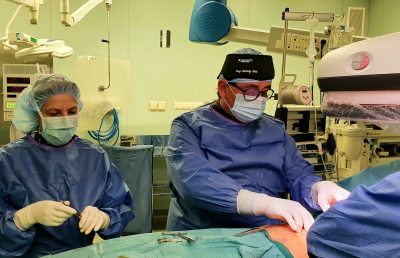 There has been a number of revolutionary changes in the treatment of acute ischaemic stroke since 2015. The removal of blood clot causing embolization of the cerebral artery has been made possible by inserting catheters into the artery under X-ray monitoring. This enables almost half of the patients with severe stroke to recover and get back to a self-supporting lifestyle. However these methods could not become widespread due to the low number of professionals specializing in neurointervention and the treatment of cerebral artery diseases. In the past 5 years the training of these specialists has sped up and Hungary has seen a tenfold increase in the number of interventions. However there are still regions and countries where the lack of specialists may cause obstacles.
There has been a number of revolutionary changes in the treatment of acute ischaemic stroke since 2015. The removal of blood clot causing embolization of the cerebral artery has been made possible by inserting catheters into the artery under X-ray monitoring. This enables almost half of the patients with severe stroke to recover and get back to a self-supporting lifestyle. However these methods could not become widespread due to the low number of professionals specializing in neurointervention and the treatment of cerebral artery diseases. In the past 5 years the training of these specialists has sped up and Hungary has seen a tenfold increase in the number of interventions. However there are still regions and countries where the lack of specialists may cause obstacles.
In order to alleviate this problem, the European Board of Neurointerventions (representing the European Neurointervention Society) and the European Society of Cardiology (representing invasive cardiologists) have prepared a recommendation to begin the training of cardiologists, enabling them to actively participate in stroke intervention work groups – summarized dr. István Szikora, associate professor, head of the Department Section of Neurointervention, National Institute of Clinical Neurosciences.
Nardai, Sandor (Semmelweis Univ, Natl Inst Clin Neurosci, Dept Sect Neurointervent, Heart & Vasc Ctr, Budapest, Hungary.|Semmelweis Univ, Budapest, Hungary.); Szikora, Istvan (Semmelweis Univ, Natl Inst Clin Neurosci, Dept Sect Neurointervent, Budapest, Hungary.);
European Heart Journal, Volume 42, Issue 4, 21 January 2021, Pages 298–307, https://doi.org/10.1093/eurheartj/ehaa833


